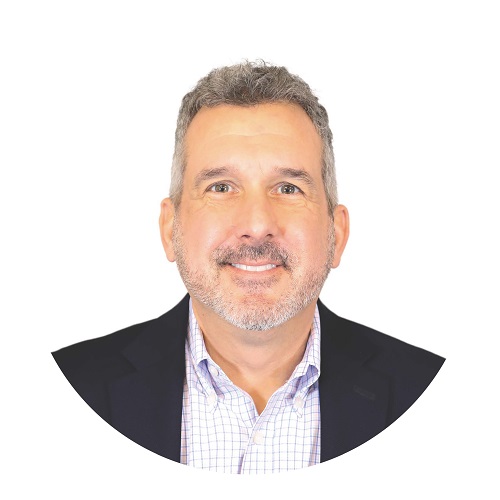Why Physicians Aren't Changing Jobs
The healthcare recruitment landscape has been challenging recently, with fewer physicians showing interest in changing jobs. The effects of the COVID-19 pandemic, ongoing labor shortages, and now an uncertain economic outlook have made many physicians hesitant to consider new job opportunities. Below are key factors driving this trend, along with strategies to address these challenges in physician recruitment.

Understanding Physician Hesitancy in Today’s Job Market
In physician recruitment, there are two primary groups to consider: practicing physicians and newly graduated residents and fellows. While these groups share some concerns, they are at different stages in their careers and have unique priorities when evaluating new job opportunities.
Established Physicians: Stability Over Opportunity
Practicing physicians have often found stable positions that offer favorable compensation, work-life balance, and a routine they are reluctant to disrupt. Here are some of the top concerns impacting this group’s hesitancy to change jobs:
- Unpredictable Housing Market: Many established physicians are concerned about the high cost of relocating to a new area. The current housing market has driven up home prices, making it harder to find affordable, comparable housing in a new location.
- Health System Stability: Physicians worry about the financial health of potential employers. Recent mergers and acquisitions have led to restructuring and even layoffs in some cases, leaving physicians wary of joining health systems that may face financial instability.
Newly Graduated Residents and Fellows: Different Set of Concerns
For new graduates, concerns are influenced by several factors, including financial pressures and uncertainty in the healthcare job market. Here’s what’s driving their hesitation:
- Student Loan Repayment Opportunities: Graduates carry significant student debt, so jobs with loan repayment benefits, such as Public Service Loan Forgiveness (PSLF), are highly attractive. Facilities that don’t offer these incentives may struggle to attract new graduates.
- Housing Costs and Market Instability: Like established physicians, recent graduates are cautious about relocating due to the high cost of housing. Many have lived modestly during training and are hesitant to take on a high mortgage alongside student debt.
- Political Climate Considerations: Increasingly, political climates are influencing job decisions. Physicians evaluate state policies on issues affecting their personal and professional lives, with many preferring states whose stances align with their values.
Pandemic-Driven Hesitancy: Lingering Effects on Physician Job Decisions
The 2020 pandemic reshaped the physician job market in unexpected ways. Many physicians are still cautious due to the sudden layoffs and rescinded job offers that characterized the early pandemic period. Today, many are scrutinizing health systems’ stability, timeliness, and adaptability to avoid future uncertainty.
Strategies for Overcoming Physician Hesitancy to Switch Jobs
While some recruitment obstacles, such as housing costs and political factors, are beyond your control, there are effective strategies recruiters can use to encourage physicians to explore new opportunities.
- Leverage Local Advantages: Highlight aspects like affordable housing in your geographic area, strong community support, and regional lifestyle benefits. This can be especially appealing if your area offers a lower cost of living compared to major urban centers.
- Promote Organizational Stability: Physicians want to feel secure in their roles, so showcasing the financial health of your health system can help reassure them. Highlight recent investments, market share, and growth projections.
- Emphasize Loan Repayment Programs: If applicable, make loan repayment benefits a key feature in job postings and discussions with candidates. For new graduates with significant debt, these benefits can be a deciding factor.
- Address Political and Social Climate Appropriately: While this may be sensitive, understanding and acknowledging a candidate’s concerns about a location’s political environment can help you build trust. Recruiters may also consider discussing regional healthcare policies or local community support that align with physicians' values.
By implementing these strategies, recruiters can help ease physician concerns, offering clear reasons to consider new roles despite the current uncertainties in the healthcare job market.
*Originally posted on 7/29/2022. Last updated on 11/1/2024.

Joining PracticeMatch in 2021, Paul supports Client Sourcing's proactive recruiting model that generates a robust prospect pool, creates an effective and efficient recruiting experience and identifies key metrics to ensure optimal performance for the client. Paul has a commitment to learning, development and passion for building a team of recruiting professionals to leverage their national footprint which benefits its client organizations and their candidates. Prior to joining the PracticeMatch team, Paul served as Medical Staff Development Officer at University Hospitals, Lake Health Region in Cleveland, Ohio.
References:
“Healthcare Recruiting Challenges Post-Pandemic.” American Medical Association, www.ama-assn.org/.
“Impact of Political Climate on Healthcare Recruiting.” National Rural Health Association, www.ruralhealth.us/.